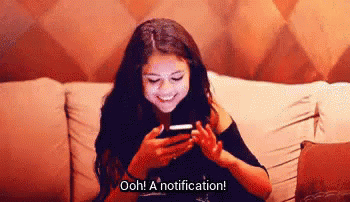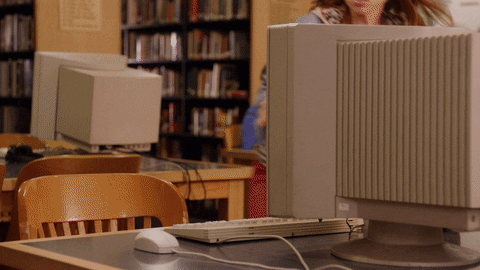An issue to make you feel a little less guilty about your kids' screen time
This issue brought to you by my child who snuck an Ipad into his room at 5 AM in honor of Daylight Saving Time
I’m going to try to stay offline, especially Twitter, as much as I can this week. I remember this time in 2020 I felt like I would have a mental health emergency if I was online/ “up to speed” on current events too much. But so far I haven’t made a plan to adopt a new social media home, for me or for the newsletter, because to me the answer isn’t being on a different platform but just trying not to be on, period.
With that on my mind for today’s issue, I spoke with Jacqueline Nesi, a psychologist at Brown University who studies the role of social media in adolescents’ mental health and development. She writes about her research for the Substack Techno Sapiens. I wanted to hear about her work and what broad strokes advice she has for parents with kids online. I found our conversation sort of reassuringly practical because most of us do relax every day with some form of screen time, us and our kids, and let’s not pretend that break isn’t needed by us all.
You had your son in the summer of 2021. When it comes to social media and the internet, knowing what you know about adolescents, do you have hopes for what your son’s relationship with screens is like when he’s a bit older or are you more like “We’ll see what our life is like and what kind of kid he is”?
In terms of my own parenting, there are probably two things that have come from my research. One is that I’m a lot more aware of my own screen use. Given my child’s age, I think a lot more about when I am on my phone around him, what am I doing on my phone during that time? What things am I modeling around screens? And how is social media affecting me as a parent?
In terms of his eventual screen use, one thing I have learned as well is that it just moves so fast. Especially by the time he is a teenager or even a preteen, things are going to look totally different. TikTok wasn’t even in the picture a couple of years ago, say two years ago. And now, it’s by far the most popular platform among teens and preteens. It’s hard to say what things are going to look like, which has been really interesting.
I’ve been thinking about this a lot, about my changing relationship with social media over the last few years. I think I needed a certain kind of connection a little bit more acutely when my kids were younger, and I was still figuring out what they were like and what I was like, and getting a baseline of what’s normal.
I do think that the pros and cons of social media for parents in some ways mirror a lot of the same pros and cons that we see for teens as well. Like you said, there’s this amazing opportunity to connect with other people, to know that you’re not alone, especially in some of these early parenting experiences, and you’re just figuring things out because you get information and tips on things, which can be great.
Then, of course, you can fall into the comparison trap, where you’re seeing what all these other people are doing and wondering if you measure up. And we run into a little bit of content overload, where there’s just too much out there, and it can be really difficult to sort through it all and figure out what’s true and what to believe.
Tell me about what you’re researching.
I have a few different areas that I focus on. One is social media use in teens and how it affects their mental health. I have a couple of studies going right now, where I’m essentially trying to look at the benefits and the drawbacks of social media for teens, how it affects different teens in different ways, and what they can do in order to use social media in healthier ways.
The other thing I’m working on is essentially what parents can do to support their kids in using technological tools in healthier ways.
What are some of the takeaways that parents will be getting from these?
So often when we talk about parenting and screens, the word “guilt” comes up. What I’m learning from the research is that the guilt is not justified. There isn’t really research to back up this idea that screens are this all-encompassing terrible thing. There isn’t evidence to suggest that the sheer number of minutes or hours the kids are spending on screens has a big impact on their well-being or development.
I do think when it comes to screens, there are a few things that do matter. One is, of course, what they’re actually doing on the screen, which seems obvious, but there’s a big difference between spending hours scrolling through social media comparing yourself to other people and texting with a good friend and catching up.
The second is who they are. Obviously, kids have such different reactions. Kids have such different reactions, different vulnerabilities and strengths. Part of this is just about knowing your kid and knowing what works for them and where they run into challenges.
The third thing that we’re finding is that it really matters what screens are replacing. Not the number of hours or minutes necessarily, but what could they be doing instead? Sometimes there isn’t really a great thing they could be doing instead and screens are a great thing for them to be using at a given moment. Other times, it can get to the point where it’s excessive, and maybe it’s getting in the way of sleep, which becomes a big issue, or it’s getting in the way of them spending any time in person with people. In those cases, then obviously it does become a problem.
The takeaway is that the overall narrative that screens are bad and we should avoid them at all costs is just not accurate and not supported in the research, and it really is more nuanced than that.
You don’t seem like the kind of person who likes to avoid nuance, but is there anything that’s black and white that you would say is a good rule of thumb?
One would be sleep. The importance of sleep just continues to be more and more well documented across hundreds, even thousands of studies for all ages for kids, especially adolescents, but really all ages. It affects everything: physical health, mental health, and mood. Any time that screens are getting in the way of sleep, that to me is a problem. I do encourage families to try to, and I do this myself just in the past couple of years, keep phones outside of the bedroom when kids are going to sleep. You can get just a regular old-fashioned alarm clock if the phone is serving as an alarm. We know that a good portion of kids when they do have a phone in the room, are waking up in the middle of the night to check it. That just clearly gets in the way of sleep.
And also, keeping all screens out of the bedroom at night. It also allows you just to do a little bit more monitoring. A lot of times when kids are getting into trouble with the stuff that they’re seeing or doing online tends to be those times when they’re alone with the screen and the door is closed.
There’s also some evidence to try to wait to introduce social media. A couple of years ago I probably actually wouldn’t have said that as clearly, but there have been a couple of studies that have come out recently that have led me in a different direction. Legally, kids aren’t supposed to be on social media until they’re 13, but obviously, we know that that doesn’t always happen. As much as possible, if you can wait until 13 years old at least to introduce social media, that can be helpful. And if not, if people are starting earlier, just know that it probably will take a little bit more close monitoring. You may want to try to use it together with them, or they use it on your phone or something like that if they are starting earlier.
There’s one study that came out recently that suggests that there are maybe some more negative effects of social media depending on a kid’s age and specifically the study suggests it might have to do with the timing of pubertal development. For girls, the age where social media had more negative effects was between 11 and 13. For boys, it was a little later, more 14 to 15, which could suggest that it’s related somehow to pubertal timing. It’s just one study, but the basic takeaway is that it could make sense to try to wait a little longer where possible.
On the one hand, I hate the idea of my kid finding hate stuff or porn online, but also I can’t describe how disgusting their devices are and how much I rely on my husband. “You make sure they have the parental locks, right?” Anyway, what a great mom. “That’s a gross screen so I can’t be bothered.”
Honestly, that’s one of the problems right now with tech generally is that it is actually really hard to monitor. It’s hard to set up those parental controls. They’re easy for kids to get around. So many of these devices and platforms are just not created for parents to be able to monitor or they weren’t really created for kids in the first place. Some of these companies are playing a little bit of catch-up in trying to make them more amenable to that purpose.
The transition time off screens can be so hard with kids. For me, it’s hard to respond gently to that kid who’s having a meltdown over their device being taken away. What is known about why certain brains are like that and if anything can relieve that transition time?
We do know that that experience does vary a lot between kids. For some kids, it’s easier than for others to disengage. There’s some evidence that for kids with concerns like ADHD or other kind of attention issues it can be a bit more difficult to disengage. That’s certainly well documented across lots of families, that this is one of the biggest challenges, especially for the preteen and younger age.
There are a couple of tips that I think are supported by the research on this. Of course, what works for one kid won’t necessarily work for another. Sometimes it is a little bit of trial and error. The basic things that the research would probably recommend on this first would be to try as much as possible to make it a routine with screen time, so kids know what to expect, they know when they’re going to get screens, they know what that’s going to look like.
Then trying to be consistent when it ends, of actually ending it. The big challenge is when kids have a hard time disengaging, it’s really easy and tempting to want to give in and just give them more time and make that escalation stop. Of course, that just reinforces that if this happens in the future, then they have a chance of getting more screen time. It keeps that pattern going.
This actually works with slightly older kids too but praising or rewarding them when they do transition well. We forget about that, especially as kids get older. That could be really helpful, just a quick, “Thank you so much for doing that,” or, “Really appreciate the way that you just put that down when I asked you to.”
The thing that people sometimes find success with is just trying to take a step back, picking a time when everyone is in an okay mood, when there are actually no screens around, and just having a conversation, bringing it up with your kid and non-judgmentally like, “Hey, I’m noticing sometimes when it’s time to end screen time, it’s a little difficult for you. Are there ideas you have or tips, things that you would suggest for how we might fix that situation? What would make it easier for you to stop using screens when it’s time to stop using screens?”
Doing a little problem-solving at a time when everyone is a little calmer can sometimes make a little difference, especially if kids feel like they have a little more ownership over it. Maybe they have a little more choice on what time of day they get to use the screens or when they get the five or 10 minute warning or whatever it might be.
Just like with adults, there are sometimes when I just want to sit there, and be on my phone, and not do anything else, depending on how tired you are and what else happened that day.
That’s a good point because we definitely use screens as an end of day wind-down before dinner time thing. I never really thought of it that way. Our son is already tired, so the tiredness makes it harder. I did an interview a bit ago with someone who specializes in ADHD, and just learned that screens stim ADHD kids brains in a certain way, so of course, they’re mad when you rip them away unceremoniously.
And you know, there can be cases if they’re playing a game or if it’s a video game or something where there are places that are easier to stop than others. Sometimes, having a conversation about that can help. “When are the times that are going to be easier for you to stop? You’re not going to be right in the middle of trying to get to the next level or whatever it might be.”
Is there anything else you wish more people asked you about?
I’m a clinical psychologist, so this is where my training is. When it comes to mental health, we are searching for simple explanations. We really want to be able to say that kids and teens are struggling with their mental health, it must be because of this reason. The reason we like to give a lot of times is phones and social media.
The truth is that mental health conditions are so complex. It’s almost never the result of just one thing. It’s always the result of a huge number of different factors, including biological susceptibility and then a number of factors happening in a person’s life. We really can’t pin a mental health concern on screens or social media, even though I know it is tempting for us to do.
End credits
Thanks for reading Evil Witches, a newsletter for people who happen to be mothers. If you haven’t yet, I hope you consider becoming a paid subscriber which gets you bonus content and helpful/honest/distracting fun members-only threads and supports this unsponsored, ad-free work.
If you have any questions, feedback, or suggestions for the newsletter, you can reply to this email or talk to other witches on Twitter, for now anyway.
The archives live here if you want to look around!






My kids have definitely peed in the garbage can instead of the toilet in the middle of the night. Also in a drawer in the bathroom vanity. (Garbage can was preferable!) Blame middle of the night sleepiness/confusion.
One thing I rarely see discussed around social media is the fact that it is how teens communicate and make plans. They are messaging through Snapchat, etc. inevitably the kid without a phone or parental blocks on social media gets left out of plans and knowing who did what to whom and the moms blame the kids.